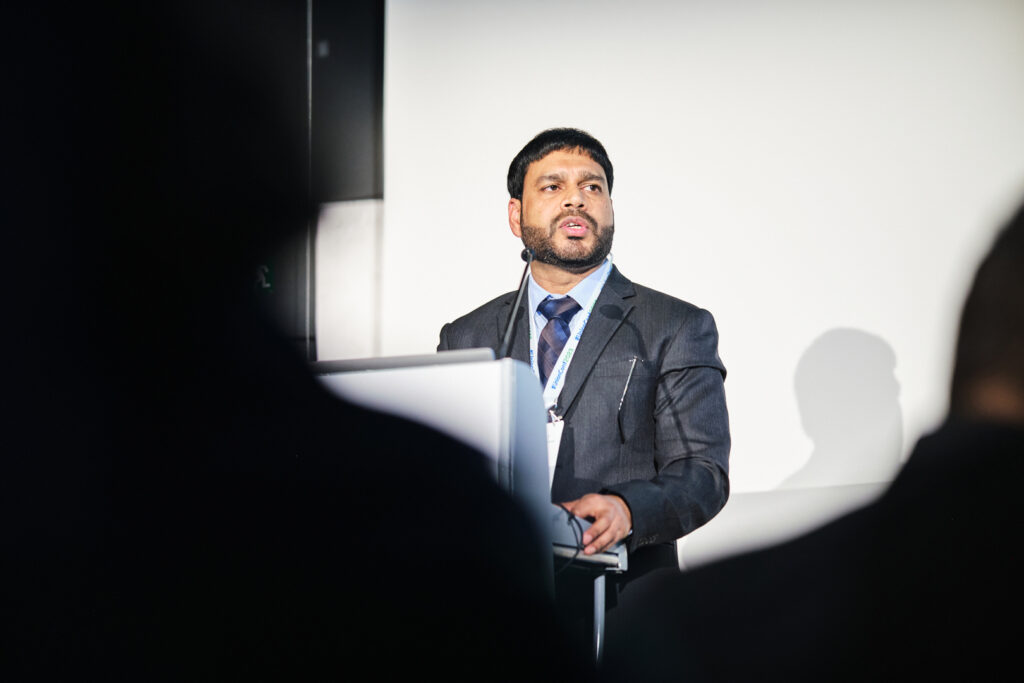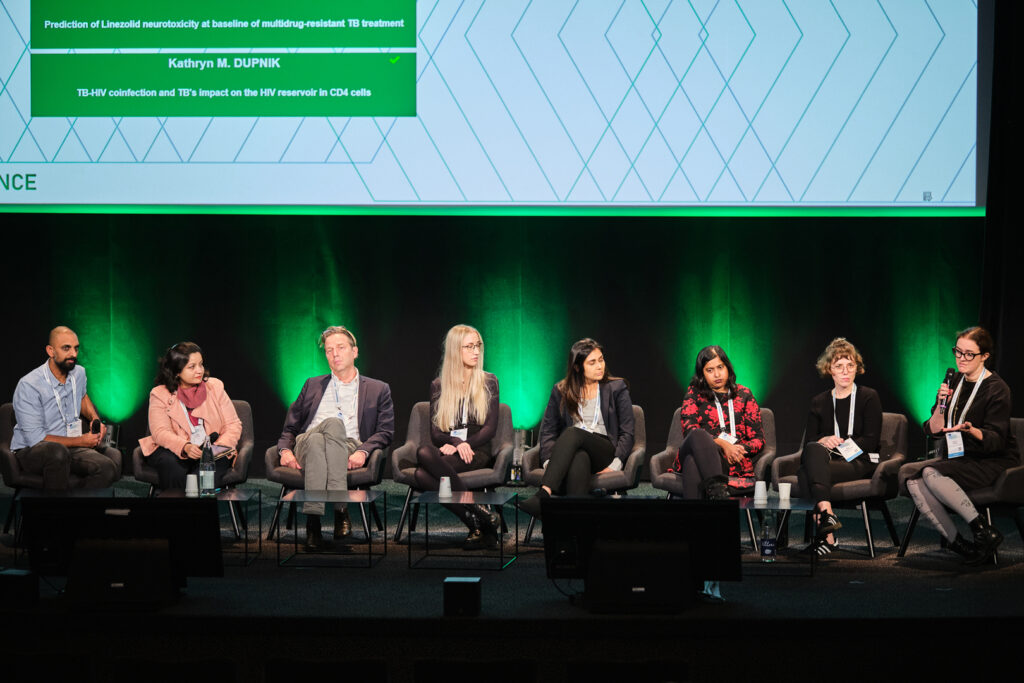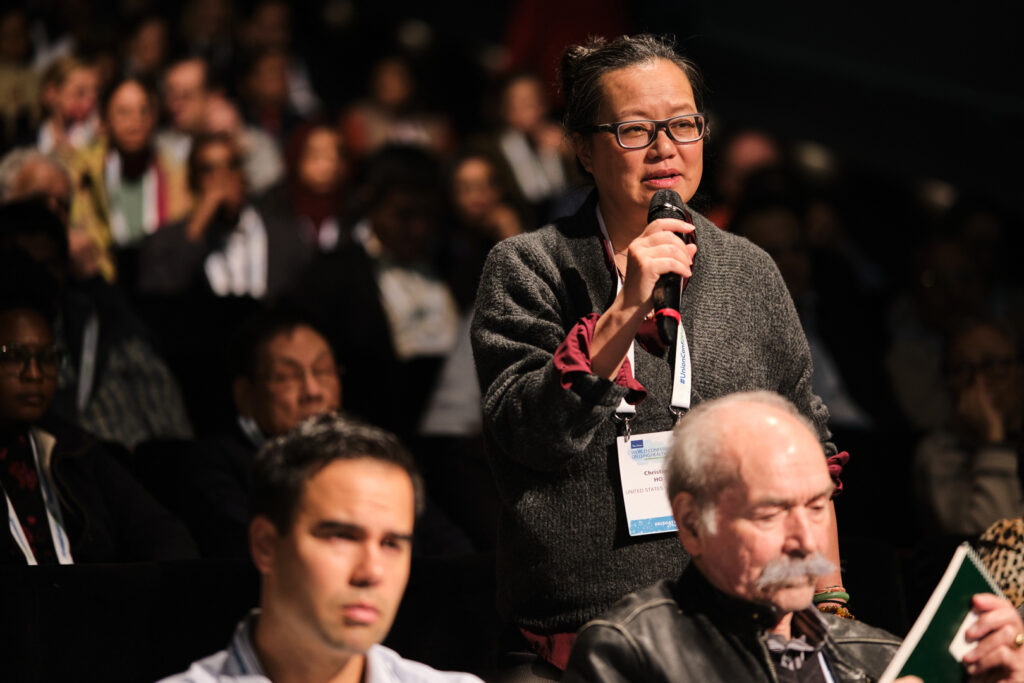Scientific Sessions

Abstract
An Abstract is a brief summary of scientific research or an analysis on a specific topic. Once submitted, abstracts are peer-reviewed and, if accepted, are organised by track and core content into oral or e-poster sessions by the Coordinating Committee of Scientific Activities (CCSA).

Post-graduate Course
A Post-graduate Course is an educational and informative session with presentations that is either three-hour (half-day) or six-hour long (full-day). Post-graduate courses will be held on 12 November.
Note: Sessions with fewer than 10 enrolled participants 8 weeks before the start of the conference will be cancelled.
Review Criteria

Satellite Session
A Satellite Session is either an educational or an industry organised activity that is supported by individuals, non-profit groups, organisations or commercial entities. Satellite sessions are up to 90 minutes long and are normally scheduled outside the core programme.
Review Criteria

Symposium
A Symposium is a 90-minute session with up to five speakers on a specific topic but with different perspectives and/or settings. Once submitted, symposium submissions are peer-reviewed and, if accepted, organised by track and core content by the CCSA.
Review Criteria

Workshop
A Workshop is a practical and audience-engaging session that is either three-hour (half-day) or six-hour long (full-day), including presentations and practical exercises. Workshops will be held on 12 November.
Review Criteria
Session Submission Guidelines
Abstracts, Symposia, Post-graduate Courses, Workshops submissions will open on 15 February 2024 and will close on 8 April 2024 at 23:59 Central European Time (CET).
Satellite session submissions are open on 15 February 2024 and will remain open until 30 May 2024 with a second round of submissions from 31 May – 1 August 2024, subject to slots availability.
Each session must be submitted under one of the official tracks for the conference, available here: List of tracks
Important note:
IMPORTANT: Chairs and speakers are required to register to attend the conference, including for sessions they will be contributing to.
Selection Review System
The Coordinating Committee of Scientific Activities (CCSA) of The Union World Conference on Lung Health bases their programme selection decisions according to a pre-defined review system.
Abstract Submission Guidelines
Submissions of abstracts, symposia, post-graduate courses and workshops will open on 15 February and close by 8 April 2024 at 23:59 Central European Time (CET).
All abstracts must present original research and at least preliminary results; abstracts reporting data pending will not be accepted. Submission implies that the material has not previously been presented or published elsewhere before presentation at The Union World Conference on Lung Health 2024. Abstracts are placed under embargo until they are presented at the conference.
Find out about The Union’s Abstract Mentor Programme.
List of Tracks
Your abstract must be submitted under one of the official tracks of the conference. You can view the list of tracks here.
Selection Review System
The Coordinating Committee of Scientific Activities (CCSA) of the Union World Conference base their programme selection decisions according to a pre-defined review system.
- Abstract Guidelines
Abstract Guidelines
Abstract Mentor Program
The goal of The Union’s Abstract Mentor Programme is to provide an opportunity for individuals with limited experience in writing and submitting abstracts to work with a volunteer mentor (someone with notable experience). Mentors review and provide feedback on the writing and content of an abstract.
Steps
General rules:
• The process is neither anonymous for the mentor nor for the mentee.
• The draft abstract submitted must follow the submission guidelines.
• Each delegate is allowed to submit only one abstract to the mentorship programme.
• The administrator of the mentorship programme will immediately return abstract drafts to the author without review if they do not follow the submission guidelines.
• Mentors assist by reviewing the content, writing and format. Some technical support on research methods, analysis, or the report of results may be provided.
• Mentors cannot indicate if they think that the abstract is likely to be selected or not.
Abstract Mentor Program
The goal of The Union’s Abstract Mentor Programme is to provide an opportunity for individuals with limited experience in writing and submitting abstracts to work with a volunteer mentor (someone with notable experience). Mentors review and provide feedback on the writing and content of an abstract.
Steps
General rules:
• The process is neither anonymous for the mentor nor for the mentee.
• The draft abstract submitted must follow the submission guidelines.
• Each delegate is allowed to submit only one abstract to the mentorship programme.
• The administrator of the mentorship programme will immediately return abstract drafts to the author without review if they do not follow the submission guidelines.
• Mentors assist by reviewing the content, writing and format. Some technical support on research methods, analysis, or the report of results may be provided.
• Mentors cannot indicate if they think that the abstract is likely to be selected or not.
